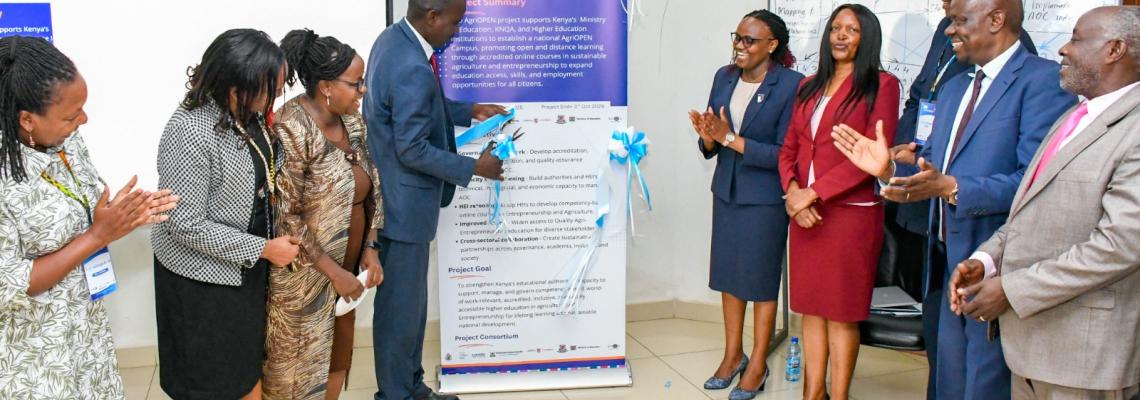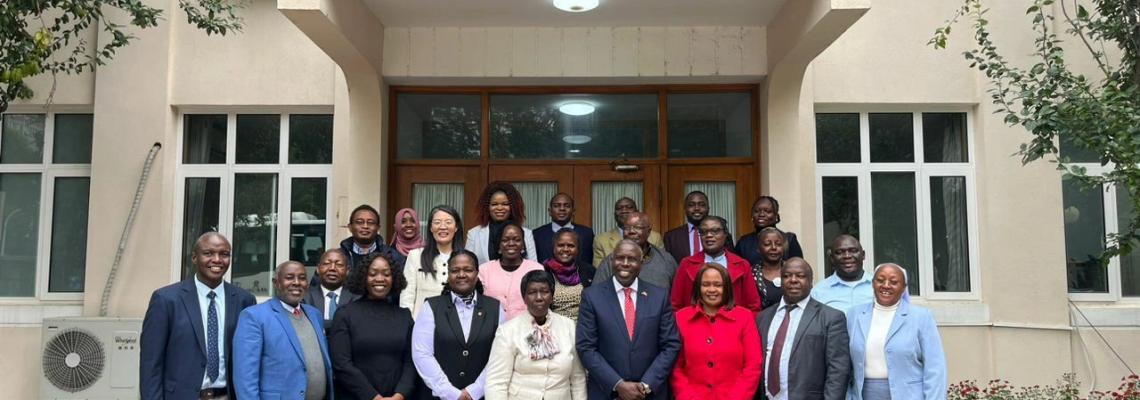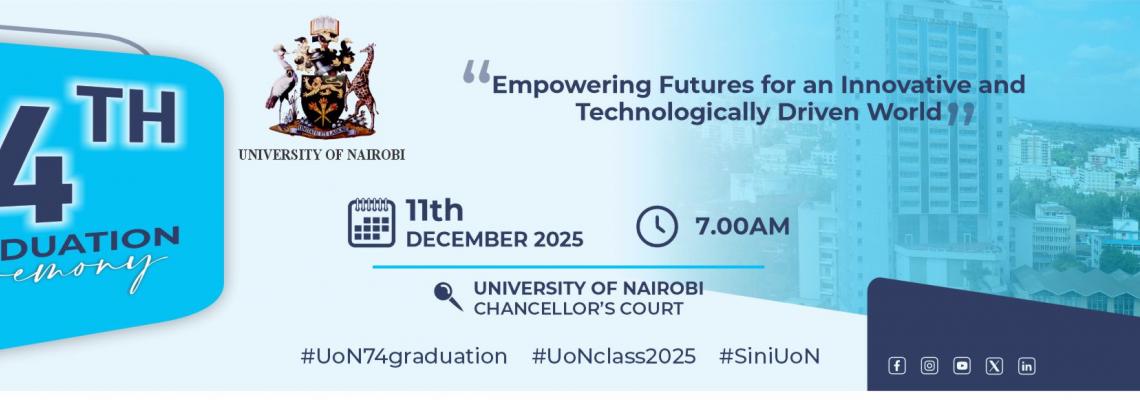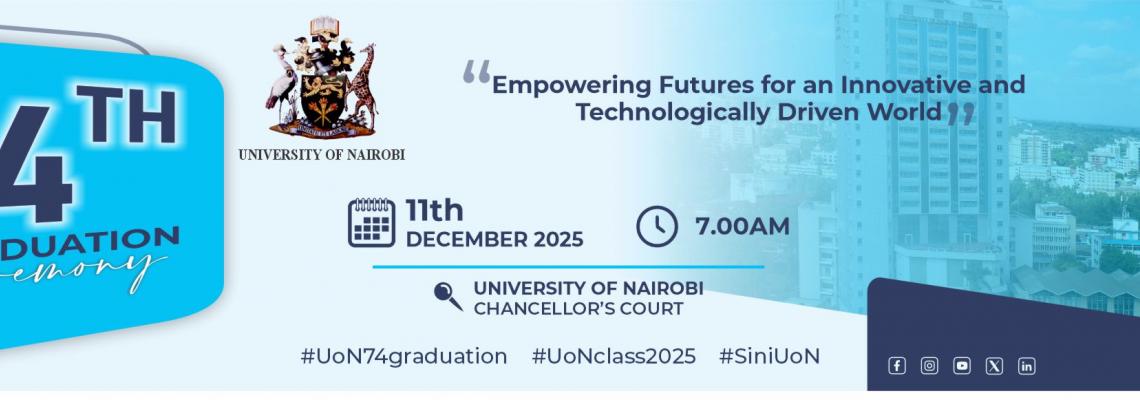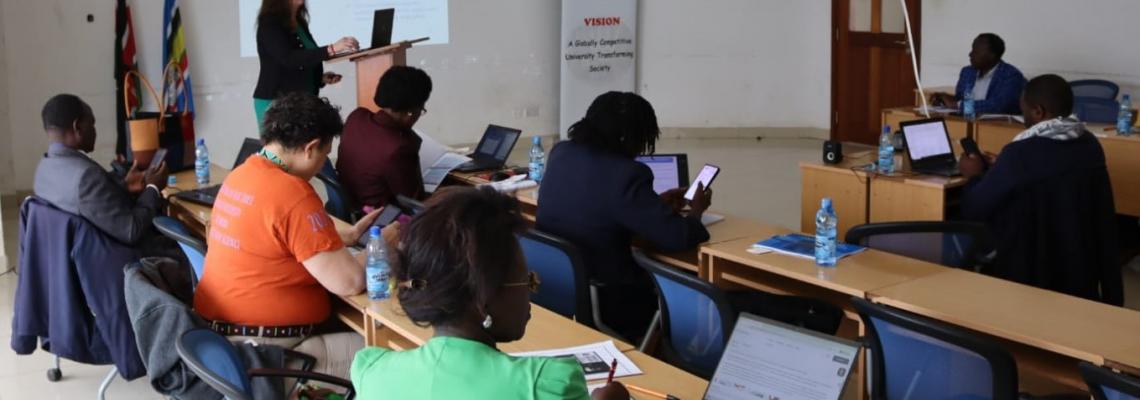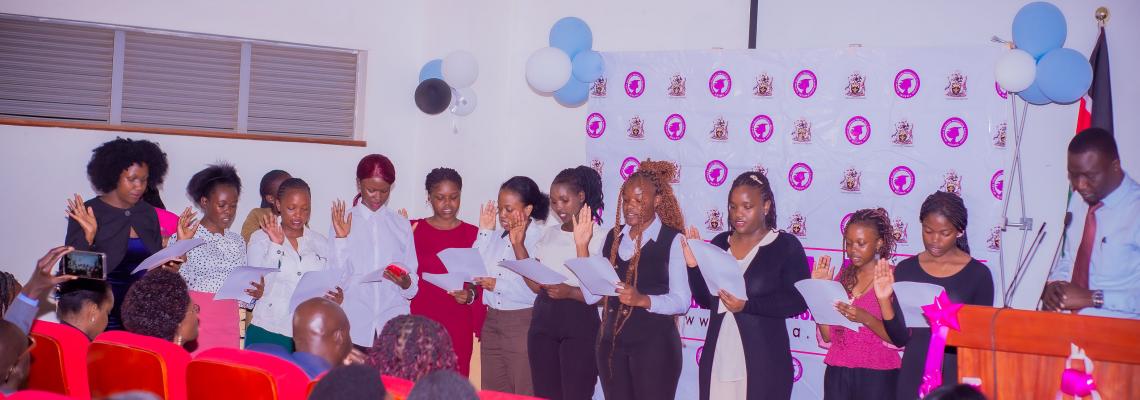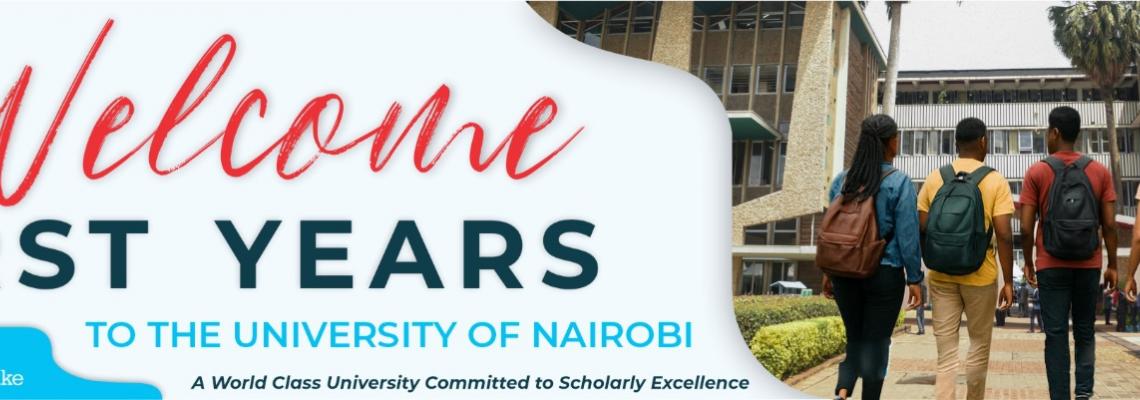Overview
Background of the Programme
The Department of Educational Communication,Technology and Pedagogical Studies has
structured a Master of Education in English Education. The programme shall focus on
educational practitioners who require relevant knowledge, skills and values to be effective in the
pedagogy of English Education. The clientele for this programme will be researchers, curriculum
designers, developers, implementers and evaluators in English Education . This programme in
English Education is intended to improve strategic thinking, eliminate wastage and add value in
teaching, management and evaluation of English Education.
Philosophy of the Programme
The programme focuses on producing post graduates who effectively teach, research, and provide leadership in English Education.
Rationale of the Programme
Kenya is preparing to be a newly industrialized nation by the year 2030. For this to be achieved, more human resources with the required skills are required. This programme will play a key role in helping the nation to achieve this goal. The graduates of this programme will acquire knowledge, skills and attitude that will enable them to lay a strong foundation in research, teaching, curriculum development and evaluating English Education.
Expected Learning Outcomes
At the end of the programme, the learners shall be equipped to:
1. Manage an English Laboratory in English Education.
2. Develop skills to train teachers in English Education
3. Develop competence necessary for carrying out research in English Education
4. Apply Learning Theories in the teaching of English Education
5. Develop Instructional resources for English Education
Structure
Duration and structure
- The degree programme has two options: course work, examination and project as option one and course work, examination and thesis as option two.
- The programme shall run for a minimum period of four semesters and a maximum 12 semesters of 15 weeks each.
- M.Ed. in English Education shall be offered by course work, examination and project/thesis. The programme shall comprise 18 course units.
- A student taking the programme by coursework, examination and project shall take ten (10) core course units, four elective course units and project.
- A project shall be equivalent to four course units.
- A student taking the programme by course work, examination and thesis shall take ten core course units and thesis
- A thesis shall be equivalent to eight course units.
- A course unit shall constitute 60 contact hours
MODE OF DELIVERY OF THE PROGRAMME
The programme shall be offered through Face-to-Face teaching mode, Open Distance and
eLearning (ODeL) mode.
Face-to-face mode
The programme shall be conducted through lectures, group discussion, seminars, tutorials, case
studies, student-lecturer consultations, supervised independent study, group projects,
demonstrations and e-learning services.
Open Distance and e-Learning (ODeL) mode
The programme shall be offered by Open and Distance e-Learning (ODeL) mode. The ODeL mode will involve:
- This will include self-instructional print and electronic study materials and other relevant online services
- Written self-instructional study modules and e-learning materials, audiovisual and interactive devices, and self-tests;
- Learning Management System delivered via internet-based technologies such as Skype, e-classrooms, Google meet, Microsoft Teams, Zoom;
- Access to learning through training hubs and other resource centres and use of both physical and e-libraries at the University of Nairobi and other institutions
- v. Limited face-to-face sessions to provide an overview of the course at the commencement of the semester, mid-semester, and revision period before examinations;
Blended Learning Mode
The course shall also be delivered through a combination of face-to-face, and ODeL where applicable.
Admission Requirements
The common regulations for the Master’s degrees in the University of Nairobi and the
School of Education shall apply.
The following shall be eligible for admission into the Master of Education (English):
- A holder of Bachelor of Education degree (English) with at least Upper Second Class honours degree of the University of Nairobi or its equivalent qualification recognized by the Senate.
- A holder of any other Bachelor’s degree (English) of the University of Nairobi with at least an upper second class honours and postgraduate Diploma in Education (PGDE) of the University of Nairobi or equivalent qualification recognized by the Senate.
- A holder of lower second class degree in education (English) obtained from the University of Nairobi and two years teaching experience or any other equivalent qualification recognized by the Senate.
- A holder of a pass degree in Education (English) from the University of Nairobi and five years teaching experience or any other qualification recognized by the Senate.
- A bachelor’s degree in relevant fields with Postgraduate Diploma in Education (PGDE
APPLICATION LINK
CONTACT INFORMATION
The Chairman, Dept. of Educational Communication Technology and Pedagogical Studies
P. O. Box 92 Kikuyu
Tel: 020-4918372
Email: dept-ecnt@uonbi.ac.ke
Careers
- Trainer of trainer
- School Manager
- Curriculum developer
- Researcher
- Translator
- Editor
- Interpreter
- Posts-secondary school teacher
- Writer
Attachment opportunities
Students undertake their attachment in high schools, teacher training colleges and other institutions where their expertise may be required
Fees and Funding
| MASTER OF EDUCATION -E55 | YEAR 1 | YEAR 2 | |||
| SEMESTER 1 - 5UNITS | SEMESTER 2 - 5UNITS | SEMESTER 1 -4UNITS | SEMESTER 2-PROJECT | TOTALS | |
| TUITION @ 25200 | 126,000.00 | 126,000.00 | 100,800.00 | 100,800.00 | 453,600.00 |
| MEDICAL FEE (PER YEAR) | 6,500.00 | - | 6,500.00 | - | 13,000.00 |
| ICT SERVICES - (PER YEAR) | 7,000.00 | - | 7,000.00 | - | 14,000.00 |
| EXAMINATION (PER UNIT @1000) | 5,000.00 | 5,000.00 | 4,000.00 | - | 14,000.00 |
| REGISTRATION (PER SEMESTER@2250) | 2,250.00 | 2,250.00 | 2,250.00 | 2,250.00 | 9,000.00 |
| ID CARD ( PER YEAR) | 1,000.00 | - | 1,000.00 | - | 2,000.00 |
| ACTIVITY-( PER YEAR) | 2,000.00 | - | 2,000.00 | - | 4,000.00 |
| CAUTION - (ONCE) | 5,000.00 | - | - | 5,000.00 | |
| LIBRARY (PER YEAR) | 5,000.00 | - | 5,000.00 | - | 10,000.00 |
| STUDENT ORGANISATION(PER YEAR) | 1,000.00 | - | 1,000.00 | - | 2,000.00 |
| THESIS EXAMINATION | - | - | - | 30,000.00 | 30,000.00 |
| Totals | 160,750.00 | 133,250.00 | 129,550.00 | 133,050.00 | 556,600.00 |
| Grand totals | 556,600.00 | ||||

